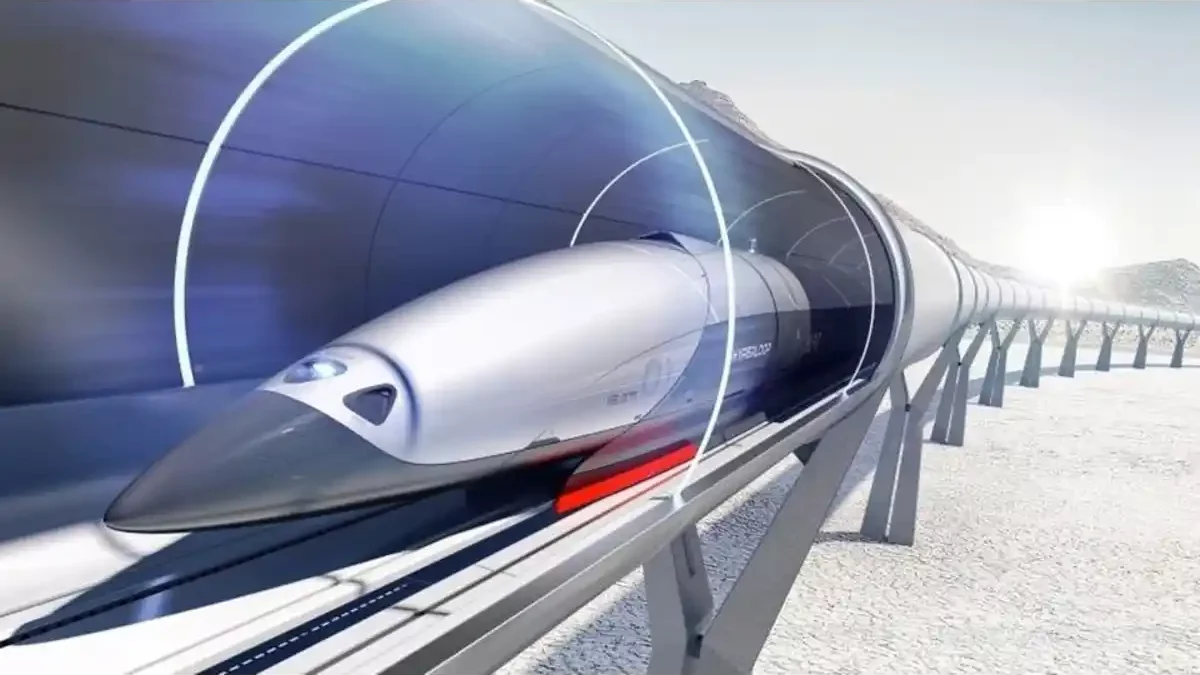Table of Contents
Introduction
The Saudi hyperloop train has been detected, which is insanity itself. For nearly a century, Saudi Arabia has relied on its vast oil reserves to power its economy.
But in recent years, oil prices have fallen rapidly, and Saudi Arabia is now looking to diversify its economy and rely less on oil.
The royal family has drawn up a new vision for 2030, which provides a plan to modernize cities across the kingdom.
As part of the plan, the state hopes to build Hyperloop. This massive high-speed air transport system travels between several cities in Saudi Arabia and the United Arab Emirates.
On Monday, Virgin Hyperloop One, a Los Angeles-based company developing technology, and Saudi Crown Prince Mohammed bin Salman unveiled a prototype of the Hyperloop project.
If this is achieved, the system will significantly change how people move in Saudi cities and the UAE.
According to the company responsible for manufacturing this project (Virgin Hyperloop One), the results of this project will be reduced every hour to a few minutes.
Hyperloop will connect Saudi Arabia to several cities in the middle east, including Dubai, Riyadh, Jeddah and Abu Dhabi.
The Exact Planned Route Of The Line Remains Unclear.
The company announced in late 2016 that it had signed an agreement with the Dubai roads and transport authority to assess the use of the hyperloop between Dubai and Abu Dhabi.
According to Virgin Hyperloop One, the system will travel two to three times faster than high-speed rail.
The airline claims to travel at around 700 mph. And transport passengers from Dubai to Abu Dhabi in 12 minutes, usually two hours by car.
The journey from Riyadh to Jeddah, which lasts more than 10 hours, will take only 76 minutes.
Going from Riyadh to Abu Dhabi – currently taking more than 8 1/2 hours – will take 48 minutes.
Below is a presentation of a control station where a team manages the hyperloop system.
Hyperloop electric-propelled vehicles move through a low-pressure tube using a particular type of engine.
Passengers can book places using an app. Which will be included when the vehicle arrives at the designated gate (e.g. the airport).
Virgin Hyperloop One says there will be 120 gates for more than 8,500 passengers per hour.
Virgin Hyperloop One is experimenting with its experimental route, Develop, in Nevada, north of Las Vegas. In December 2017, the team successfully tested a full-scale system on DevLoop. The car arrived at a top speed of 240 mph (385 km/h).
Hyperloop First Program In An Actual City Is Still A Massive Project (Under Launch).
While cities have long used windpipe systems to deliver small packages, transporting people raises key engineering and cost challenges.
For example, to drive trains (project) through pipes. A high-speed air pressure system will require a lot of heat.
Air conditioning inside the tunnels will help, but it requires broader and more expensive tunnels.
Elon Musk is credited with popularizing the idea of the modern hyperloop. And his tunnel company, The Boring Company, is working on its system.
In July 2017, Musk posted that he had received Boring’s “verbal government approval” to build an underground system (Hyperloop) connecting major cities in the northeastern United States.
The company is currently working on two projects in Washington, d.c., and Los Angeles.
Hyperloop First Started At A Test Site In Los Angeles
However, Boring still needs billions of dollars and many years to build its first official tunnel.
In Los Angeles, California’s environmental quality act regulates large-scale construction projects. And it is reported that the review process alone could take at least three to four years.
Virgin Hyperloop One and the Saudi government believe that hyperloop transport will stimulate economic growth and diversify the country’s industries. Feed the manufacturing and technology sectors, and stimulate job growth in the region.
Today’s visit and discussions on the launch of the next phase that will make the virgin hyperloop one project a reality in Saudi Arabia. The company’s CEO, Rob Lloyd. Said so in a statement published on April 2.
Saudi Arabia And UAE Are Exploring Several Future Transport
Therefore, In early 2018, Dubai began testing self-driving mobility units. Which the city may use for local transport in the coming years.

